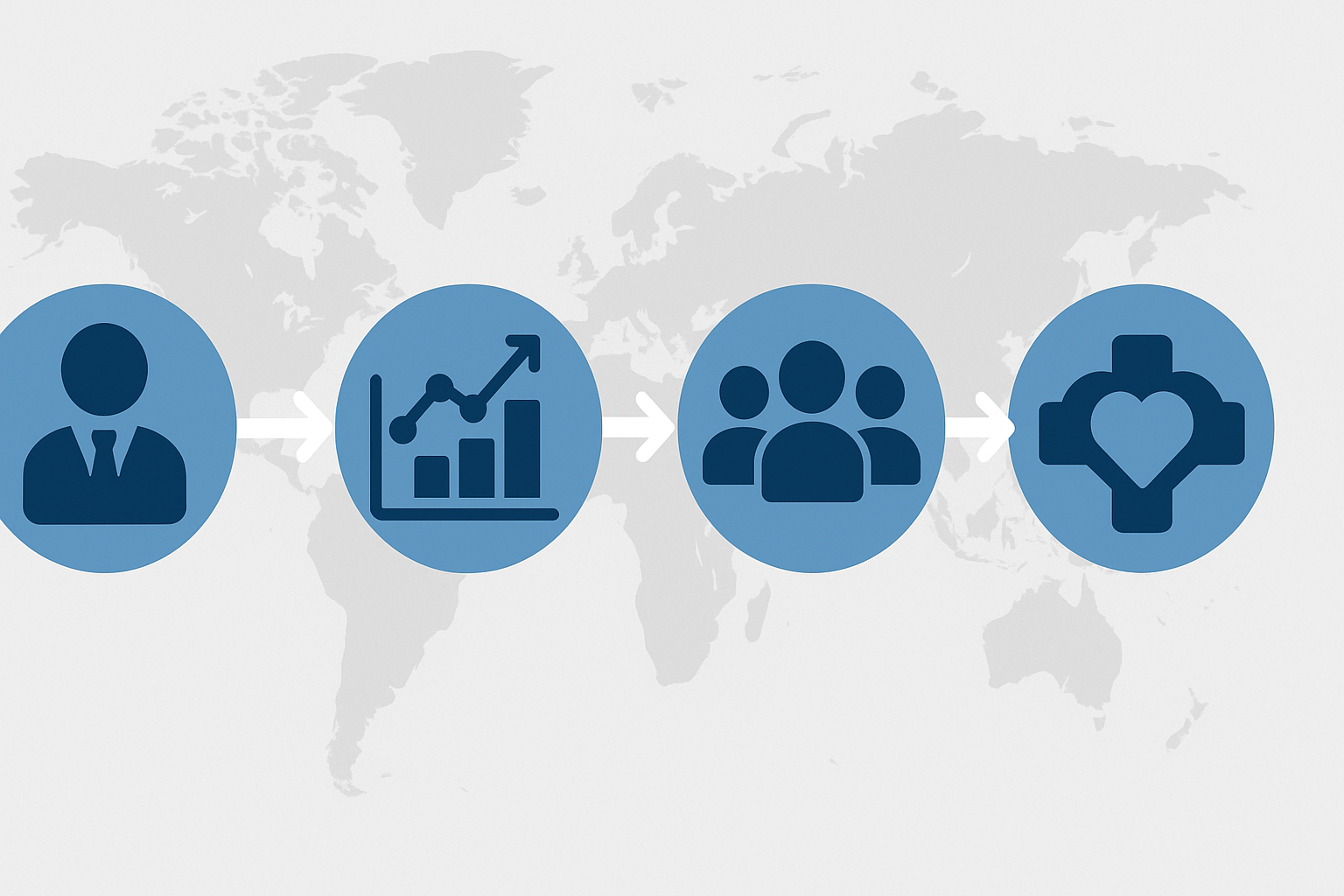
In 2019, research and consulting firm McKinsey published a report titled A Vision for Medical Affairs in 2025, focusing on four core areas of medical activities with the highest potential to optimize patient experiences and improve outcomes.
In 2023, they circled back with an updated vision, stating that “the importance of medical-affairs leadership has come into even sharper focus as the industry and world have reacted to the COVID-19 pandemic, the meteoric development of mRNA vaccines, and a complete upending of the pharma-physician engagement model.”
In this 2023 report they outlined five key priorities for patient impact and turned their focus to what can be done by 2030. As we’re halfway through our decade and 2030 gets closer and closer, we’re taking another look at how they’ve outlined a bold, data-driven, patient-centric future for medical affairs–and provide Unite’s perspective on the priorities outlined in the 2023 article.
Then, we’ll finish by sharing how Unite Genomics is already accelerating the work toward these goals (check out our recent white paper for a sneak peek).
Simply by way of revisiting their priorities between 2019 and 2025, McKinsey is demonstrating that things are changing quickly at the intersection of medical affairs, patient care, and technology. Why specifically are things changing so quickly? The McKinsey report outlines a few key reasons:
In their 2023 article, McKinsey outlines five key priorities that medical affairs leaders should focus on to achieve these bold goals for patient care.
As the leading AI-powered health insights platform, Unite Genomics is working at the forefront of the AI data revolution. Here are a few ways we’re already working toward the future that McKinsey outlined in its report—long before reaching the 2030 milestone.
Amidst the explosion of data mentioned in the McKinsey report, Unite Genomics is making that data useful and actionable for care teams, while also making it accessible to patients—all with the goal of identifying care gaps and driving better patient outcomes.
For example, we recently enabled a medical affairs team to identify deviations from optimal care using real-time EMR data and delivery targeted interventions. Patients and physicians received personalized messages designed to close care gaps, turning insights into action.

This data also give medical affairs teams unprecedented access to data, allowing them to independently drive initiatives separate from commercial or research silos, and without the traditionally high infrastructure costs.
The McKinsey article predicts a future where pharma companies use AI and RWE analytics more holistically and with sophistication and agility to unlock incredible insights that fill in evidence gaps. To make this happen, innovative approaches will need to be operationalized in order to generate evidence quickly, and collaboratively. According to the article, “New data will be needed within months, not years. Executing at this pace will require embracing innovative and scalable analytical approaches that can be built once and reused across assets and therapeutic areas to capture their full value.
Unite Genomics is already embracing this approach. We’re saving pharma companies time and money by leveraging AI and our consented donor base to deliver observational studies and other RWE that’s faster, more complete, and more affordable. Read our recent article to learn how we helped a biopharma organization facilitate a 60-site nationwide observational cohort study of 110 ALS patients at one-tenth the cost and one-third the time of a traditional study.
Turning more specifically to the medical affairs audience, the article notes that “by 2030, medical affairs will dramatically broaden the stakeholders it engages with, moving beyond key opinion leaders to scientific exchange with community physicians, payers, and other value-based decision makers and more in coordination with other external-facing teams.”
Yet at the same time, the article cites an unpublished 2022 survey of US physicians that found that more than a quarter of them want less face-to-face pharma engagement over the next few years, and more digital engagement.
Unite’s platform carves a new path for pharma companies to reach physicians in a more targeted manner—even among physicians who don’t want to see pharma reps. With a 60/40 split between community and academic physicians across 19,000 health systems in the US, we help medical affairs teams scale content and deliver insights-driven engagement in a cost-effective way.

And, using EMR-based signal analysis, we uncover the true challenges physicians face, so that pharma companies can deliver highly relevant content and deploy field resources only when precision targeting is required.
Simply put, we can deliver the right content, to the right physician, via the right channel, at the right time—just as the McKinsey article outlines.
“This vision should be a cross-industry rallying cry, mobilizing medical affairs to prepare for the future,” the McKinsey article concludes. Leading and emerging pharma brands can’t afford to wait until 2030 to pursue these goals. Now is the perfect time to start investing in the capabilities that can help you unlock the data and analytical capabilities that will make a measurable impact on patient outcomes.
To learn more about how Unite Genomics can help start you on a path toward a future where medical affairs teams play a crucial role in delivering high-quality patient experiences alongside R&D and commercial, contact us for a demo.